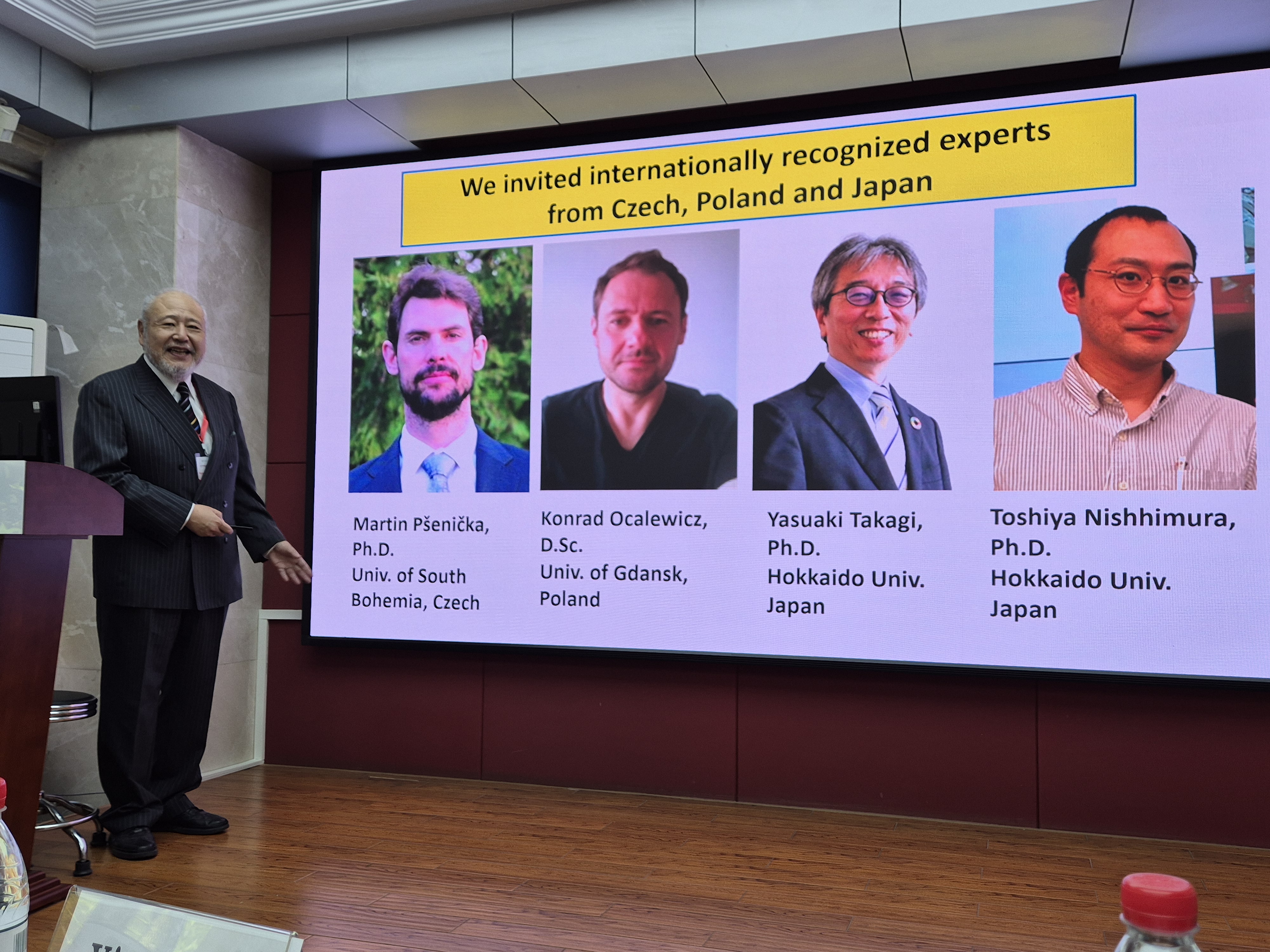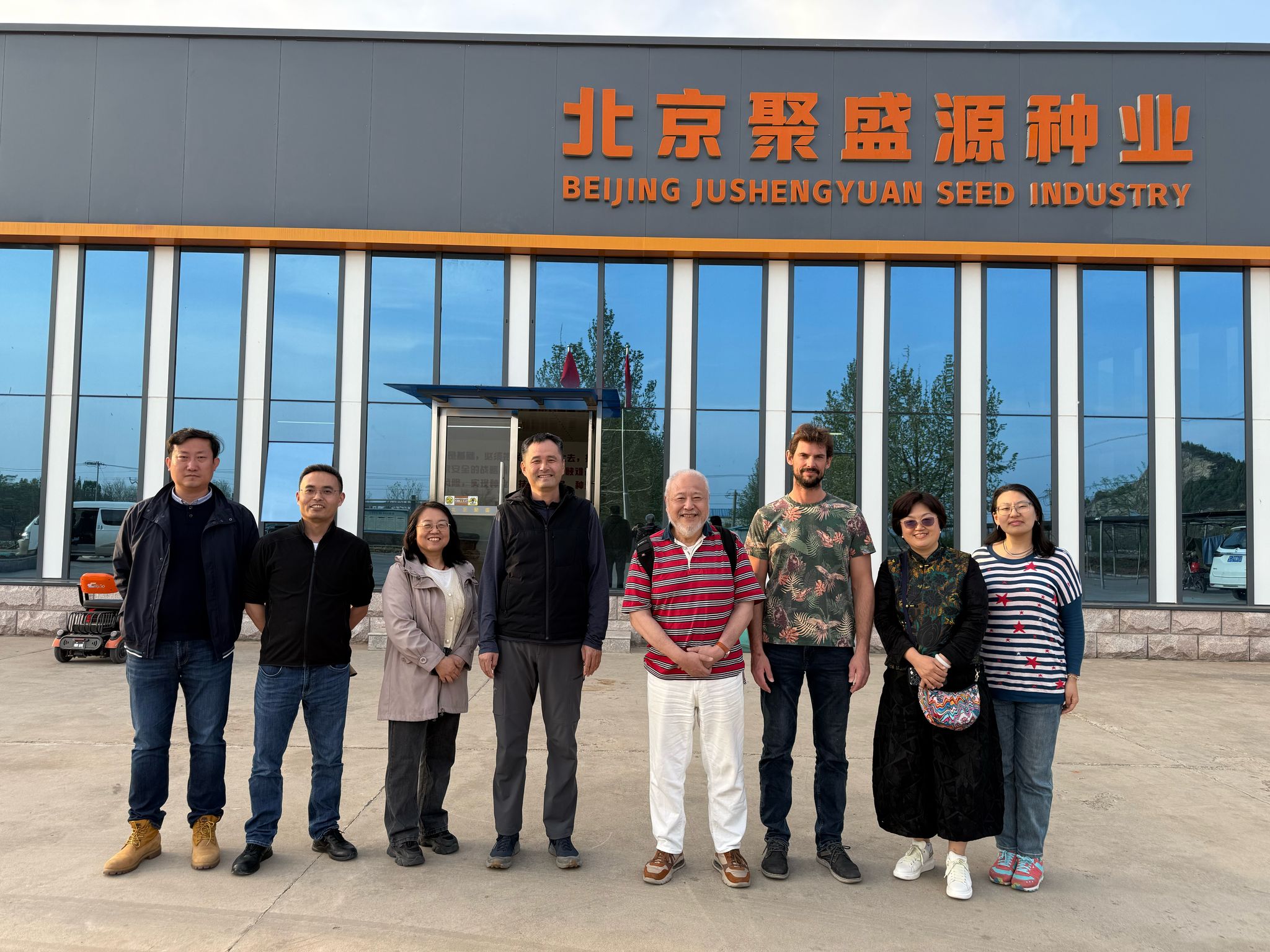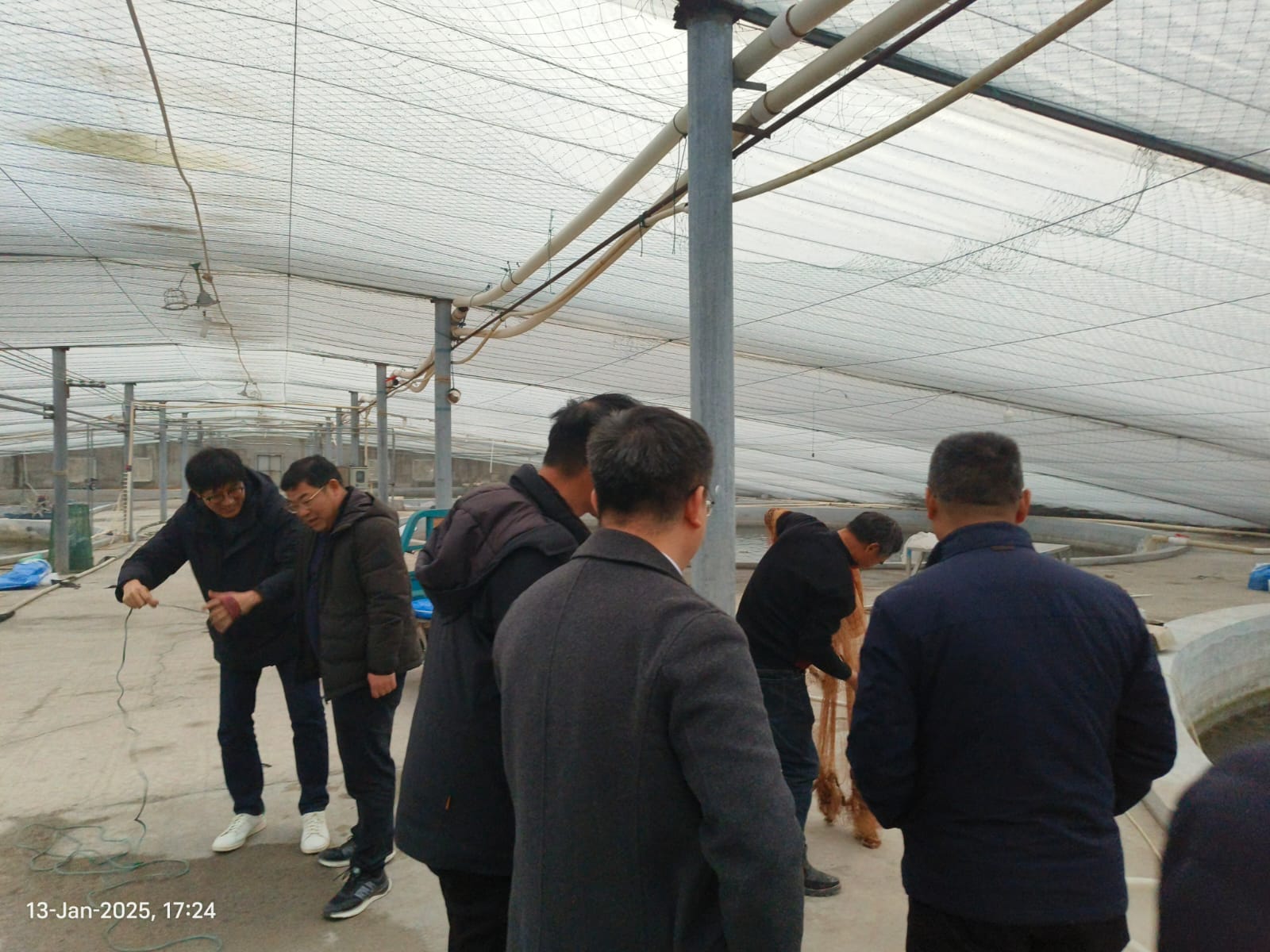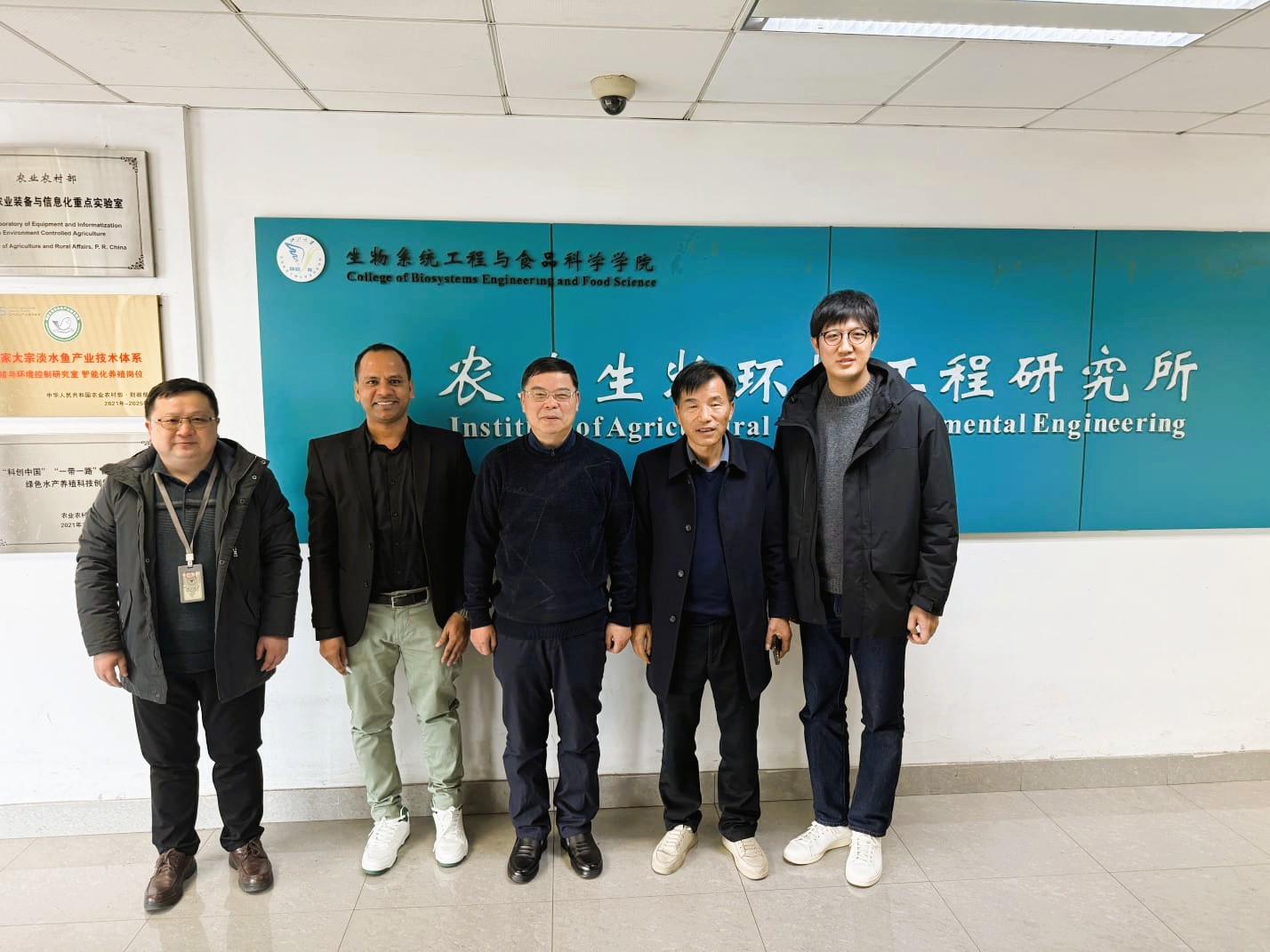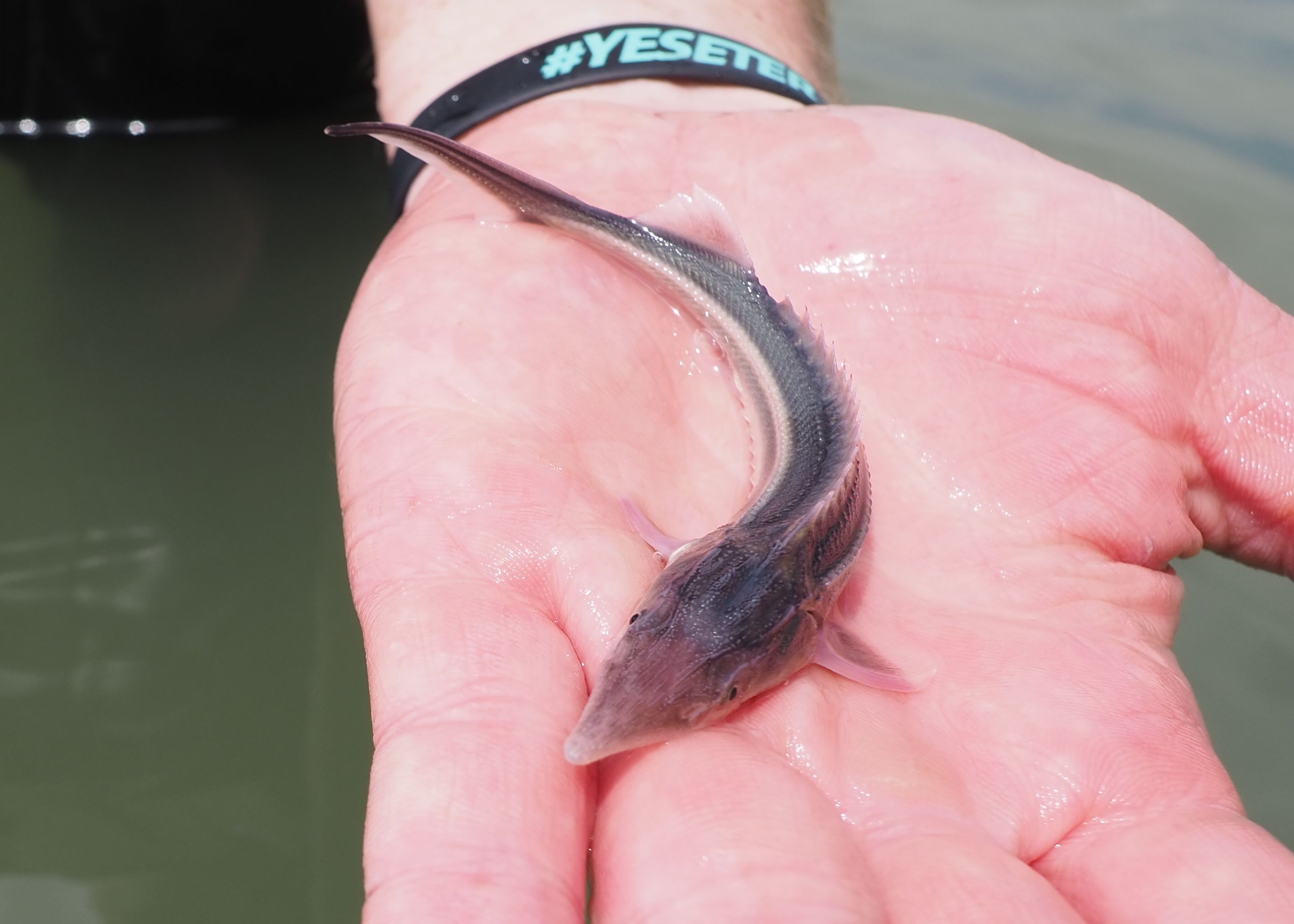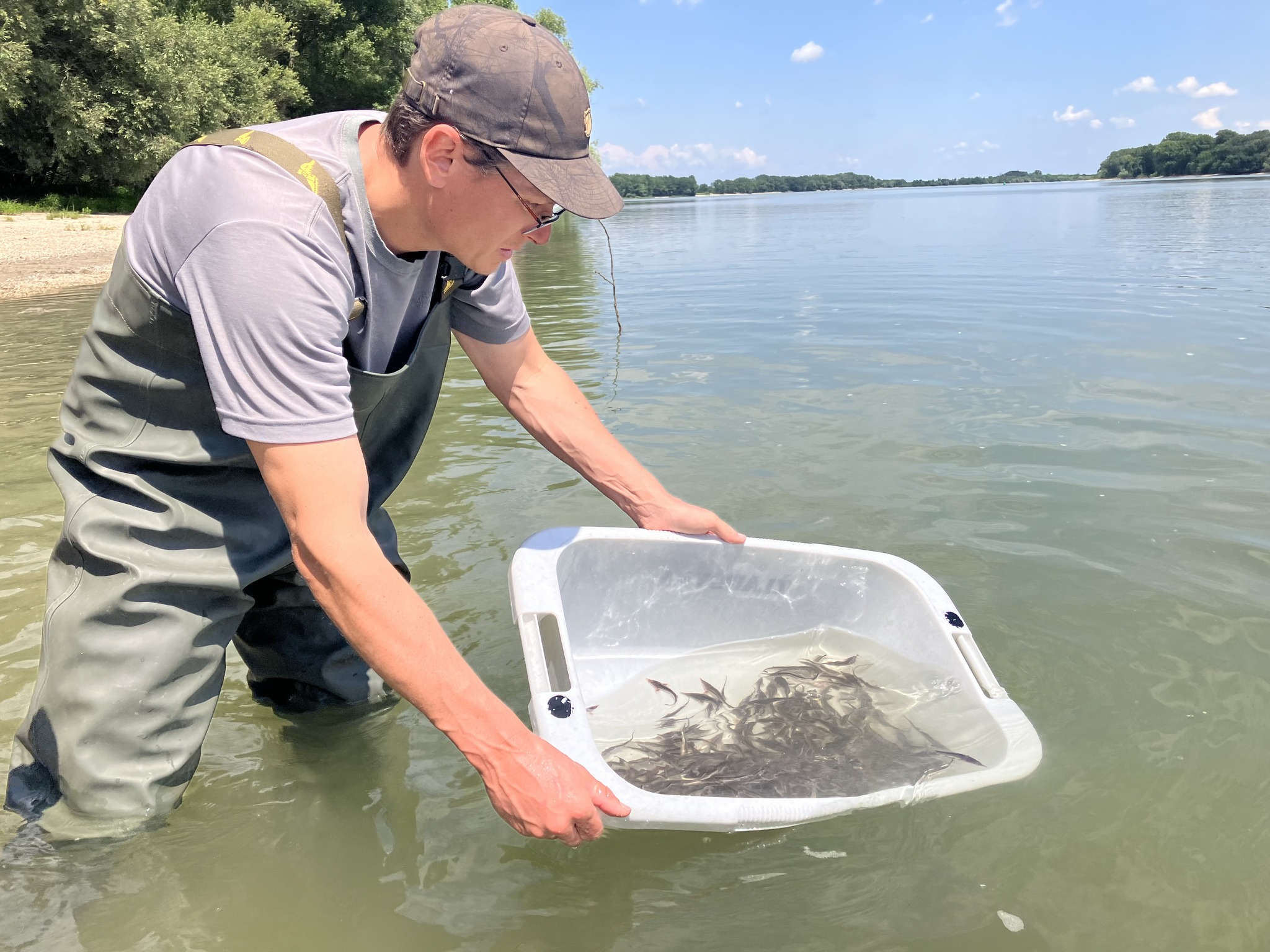Between April 11 and April 21, I undertook a business trip to China, upon the invitation of the Chinese side. During this trip, I visited three different institutions, where I introduced our faculty and delivered invited lectures.
The first presentation, titled “Mitochondria in Germ Plasm: Essential but Replaceable for PGC Formation in Sturgeons”, was given as part of the International Symposium on Aquaculture Biotechnology, hosted by the College of Fisheries, Huazhong Agricultural University in Wuhan. We have had a long-standing cooperation agreement with this institution. Our research activities closely intersect, particularly in the field of gene and genome manipulations, and this year we plan to host two students from this university for internships.
The second presentation, in which I introduced our research in the field of germ cell biology, was delivered at the Department of Genetic Breeding, Hunan Fisheries Science Institute in Changsha, where our former student, Dr. Xuan Xie, is currently working.
The third visit took place at the Beijing Academy of Agriculture and Forestry Sciences. This included the formal signing of a cooperation agreement, followed by a presentation of our faculty and our research activities. One of our current students, Linan Gao, originally came from this institution and, following the successful completion of her studies, she is expected to return to continue her work at the Beijing Academy.
The discussions focused mainly on student exchange and recruitment of students into our Master’s study program Fishery and Protection of Waters.
In addition, I had the opportunity to visit two sturgeon farms collaborating with Chinese research institutions. The first, Beijing Jushengyuan Seed Industry, is a large-scale farm primarily focused on the production of Kaluga × Amur sturgeon hybrids for caviar production. The second, Beijing Tianyuan Yugang Farm, is a smaller family-run facility that also operates a hotel and restaurant in a scenic mountain area beneath the Great Wall of China.
From January 7th to January 16th, 2025, I visited Xiaoshan, China, to participate in a series of research meetings and field observations. During this trip, I had the privilege of collaborating with Hangzhou Xiaoshan Donghai Aquaculture Co., Ltd., and Professor Liu Ying of Zhejiang University. The discussions focused on advancing technologies for hatchery production of freshwater fish and the development of innovative water treatment solutions. These meetings served as an invaluable opportunity to exchange ideas, evaluate industry challenges, and align our objectives to achieve meaningful research outcomes.
In addition to the discussions, I visited aquaculture facilities specializing in seabass and white-leg shrimp culture systems. This allowed me to observe firsthand the operational challenges faced by the industry and how our proposed technologies could address these issues. The insights gained during these visits will play a vital role in adapting our research for practical application. Overall, this trip marked a significant step in building a long-term partnership aimed at enhancing sustainable practices in aquaculture and improving water quality management.
In May, I participated in a nine-day visit to Xiaoshan, China, as part of a prestigious young talent research program. After my research proposal passed the initial evaluation stage, I was invited to present my project during the discussion round. My presentation focused on advancing cost-effective hatching technologies, optimizing water management systems, and developing sustainable nutritional strategies for freshwater aquaculture. This project evaluation took place at the Talent Exchange Centre of the Ministry of Industry and Information Technology in Hangzhou.
During the visit, I engaged in productive discussions regarding the potential for research collaboration and funding support with representatives from the Xiaoshan Municipal Aquaculture Company and Professor Songming Zhu from Zhejiang University. I also toured a high-tech aquaculture operation that displayed cutting-edge equipment and new methods. This experience sparked new ideas and further strengthened my interest in aquaculture research. Ultimately, the trip was a major milestone in establishing future academic and industrial partnerships aimed at promoting sustainable aquaculture practices.
From 3rd December to 8th December 2024, M.Sc. Tomáš Tichopád, Ph.D. visited the Chinese city of Wuhan. Specifically, he accepted an invitation to attend the "International Symposium on Higher Education in Fisheries, Fish Genomics and Aquaculture oriented Biotechnology" at Huazhong University, where he also gave a lecture on "Molecular Background behind hybrid loaches (Cobitis) sterility: genes and regulations". In addition to the lecture itself, he participated in a number of expert discussions on the possibilities of international cooperation. An important part of the programme was a discussion with Chinese colleagues on future cooperation in the field of gene manipulation and its use in the study of reproductive traits in fish. We also had the opportunity to share knowledge on the latest technologies in the field of CRISPR/Cas9 and their applications in aquaculture.
In the framework of AQUAEXCEL3.0 technician transnational mobility exchange program, I undertook training activities at Hellenic Centre for Marine Research (HCMR) facilities (Heraklion, Crete), from November 24th to December 1st, 2024. I had a close look to Behavior and nutrition lab, Pre-growing, Intensive Hatchery, Mesocosm Hatchery recirculating aquaculture systems. It was shown cameras and sensors placement. I visited SOUDA Cage Farm near Chania city. I actively engaged in sensors installation and maintenance, data transfer and storage in the sea cages monitoring conditions. For the data processing and design of imaging devices it is very useful to know the conditions of sensors placement and operation on the monitoring site. The gained knowledge will be used in the implementation of the faculty projects for welfare monitoring analysis.
On 16th–20th September 2024, the 24th International Astacological Symposium took place in Zagreb, Croatia, where the University of South Bohemia was represented by a five-member team of scientists from the Laboratory of Freshwater Ecosystems (Pavel Kozák, Antonín Kouba, Davinder Kaur, Azeem Iqbal, Augusto Frederico Huber). Together, we provided four oral presentations and two posters.
During the four-day scientific programme, topics related to research on freshwater crayfish were discussed and, in addition to the scientific part, the conference programme also included a visit to Plitvice Lakes National Park, which is home to several critically endangered species, including populations of river crayfish and stone crayfish.
During the symposium, the Rector of the University of South Bohemia, Pavel Kozák, was re-elected as a member of the International Conference of Astacology's top management and will most likely be appointed its President in 2026. The election of Pavel Kozák to the head of this world scientific organization only confirmed the excellent scientific reputation of the Faculty in the field of research on these crustaceans.
A significant reinforcement of our team is the arrival of a new doctoral student, Augusto Frederico Huber, who was awarded as the best-presenting student.
On November 20-21, 2023, as part of the fulfillment of the goals of the LIFE Living Rivers project (101069837/LIFE21-IPE-SK-Living Rivers), a part of the telemetry gates was installed (on the Čunovo and Gabčíkovo water bodies) for the subsequent study of the sterlet migration in the Slovak part Danube. The event was attended by FROV JU staff consisting of Bořek Drozd, Lukáš Veselý, Jan Kubec, Martin Vlk and Filip Ložek.
RNDr. Bořek Drozd, Ph.D.
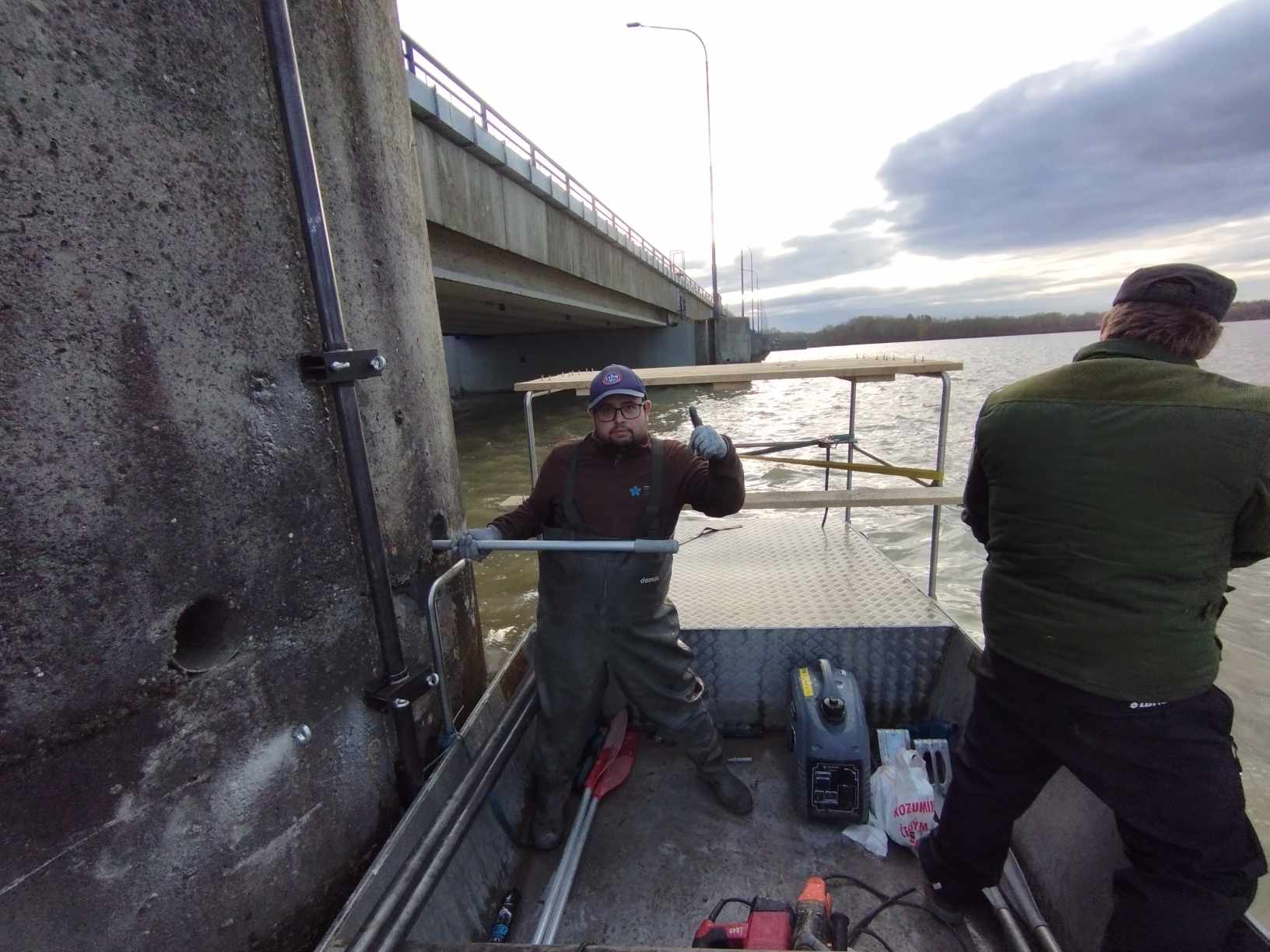
- Fotogalerie:
- Foto:
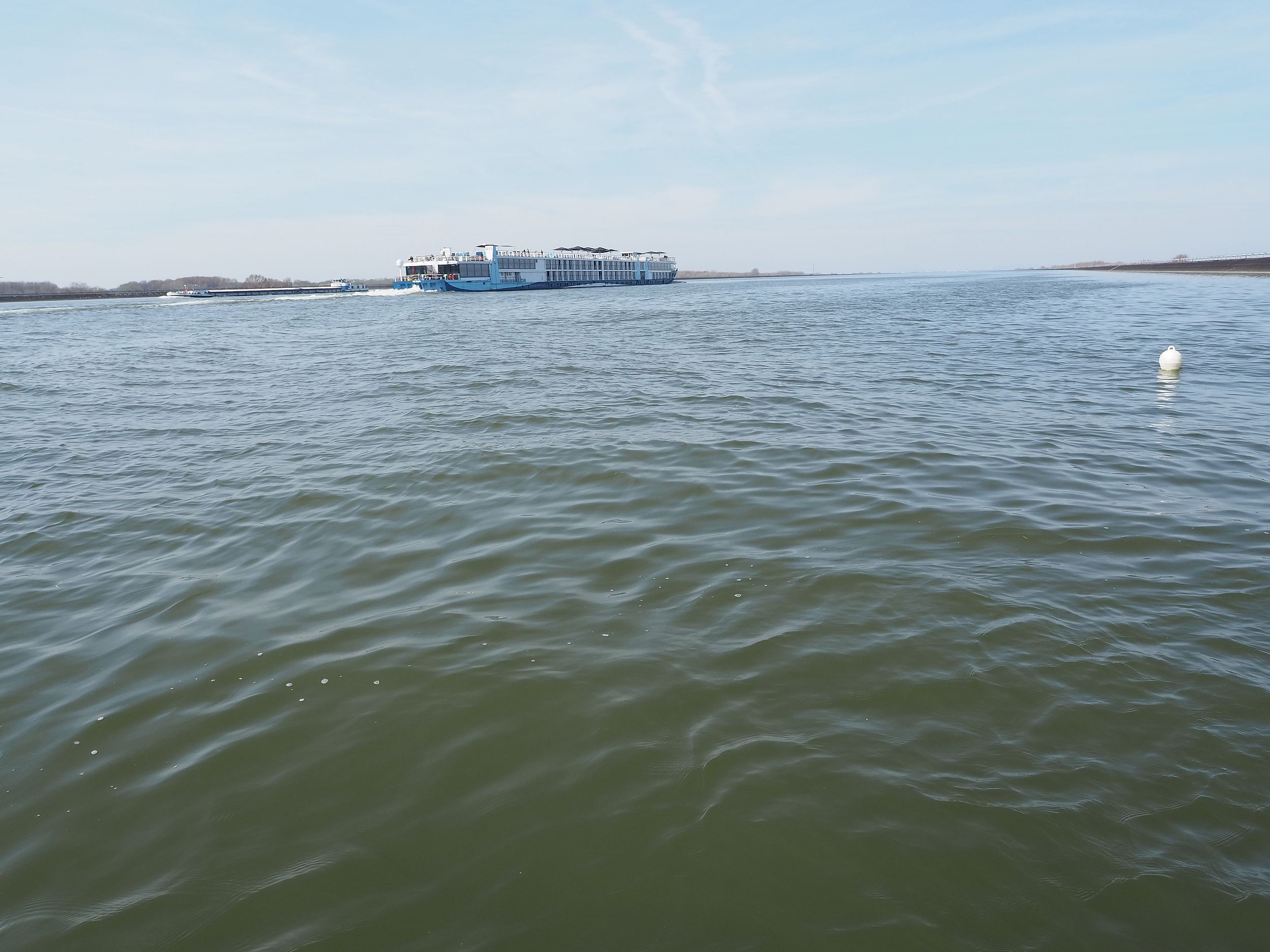
- Foto:
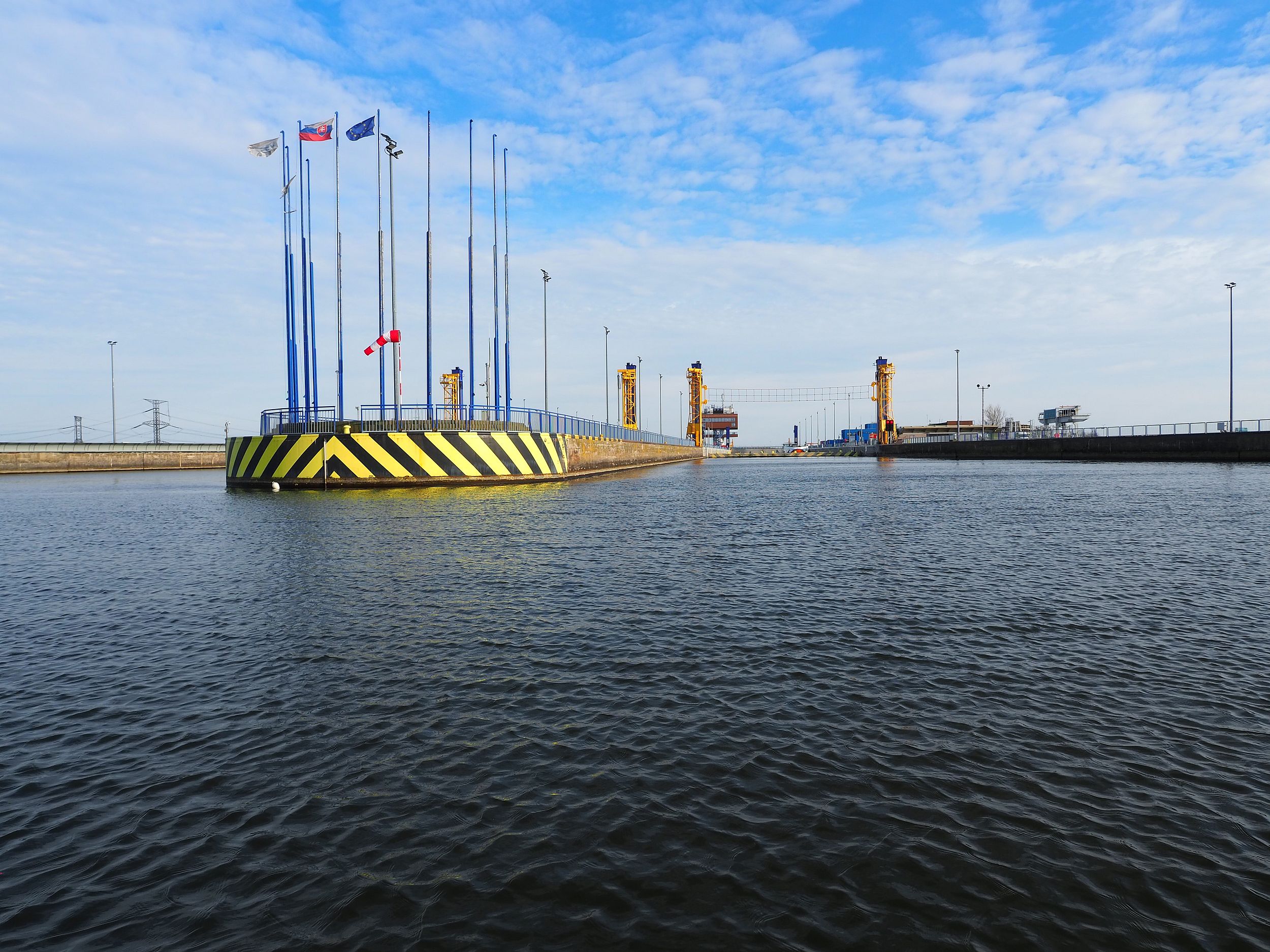
On March 20-25, 2023, staff of the FFPW USB (Dr. Bořek Drozd and Ing. M. Šindler) together with colleagues from the Hydrobiological Institute BC ASCR v.v.i. performed preparatory tests in the field to verify the functionality of the technology and its settings for a telemetric study of the migration passability of the key barriers and water structures in the Slovak part of the Danube (Čunovo, Gabčíkovo, Dunakiliti and others) for fish. The survey was carried out in accordance with the objectives of WP6 of the project LIFE21-IPE-SK-LIFE Living Rivers/101069837.
RNDr. Bořek Drozd, Ph.D.
On May 11-12, 2023, staff of the FFPW USB (Dr. Bořek Drozd and Ing. M. Šindler) together with colleagues from the Slovak Angling Union and BOKU (Vienna, Austria) performed collection of the sterlet in the Danube. Furthermore, a selection of the suitable localities for performance of the ichthyomonitoring surveys within the project LIFE21-IPE-SK-LIFE Living Rivers/101069837 took place.
Author: RNDr. Bořek Drozd, Ph.D.
On September 11-15, 2023, staff of the FFPW USB (Bořek Drozd, Jan Kubec, Lukáš Veselý, Martin Vlk, Martin Bláha, Marek Let, Daniel Kvapil, Filip Kupka, Das Koushik, Iqbal Azeem, Oficialdegui Aladren Francisco Javier a Balzani Paride) together with colleagues from the Slovak Angling Union performed monitoring of the fish populations of the Slovak part of the Danube and its side branch system within the project LIFE Living Rivers (101069837/LIFE21-IPE-SK-Living Rivers). The results of the surveys will be used to evaluate the current state of fish populations, to set up sustainable fishing and fishery management and are also key to the design of fish ladders and passes through which the gigantic Gabčíkovo and Čunovo water constructions will be passable.
RNDr. Bořek Drozd, Ph.D.
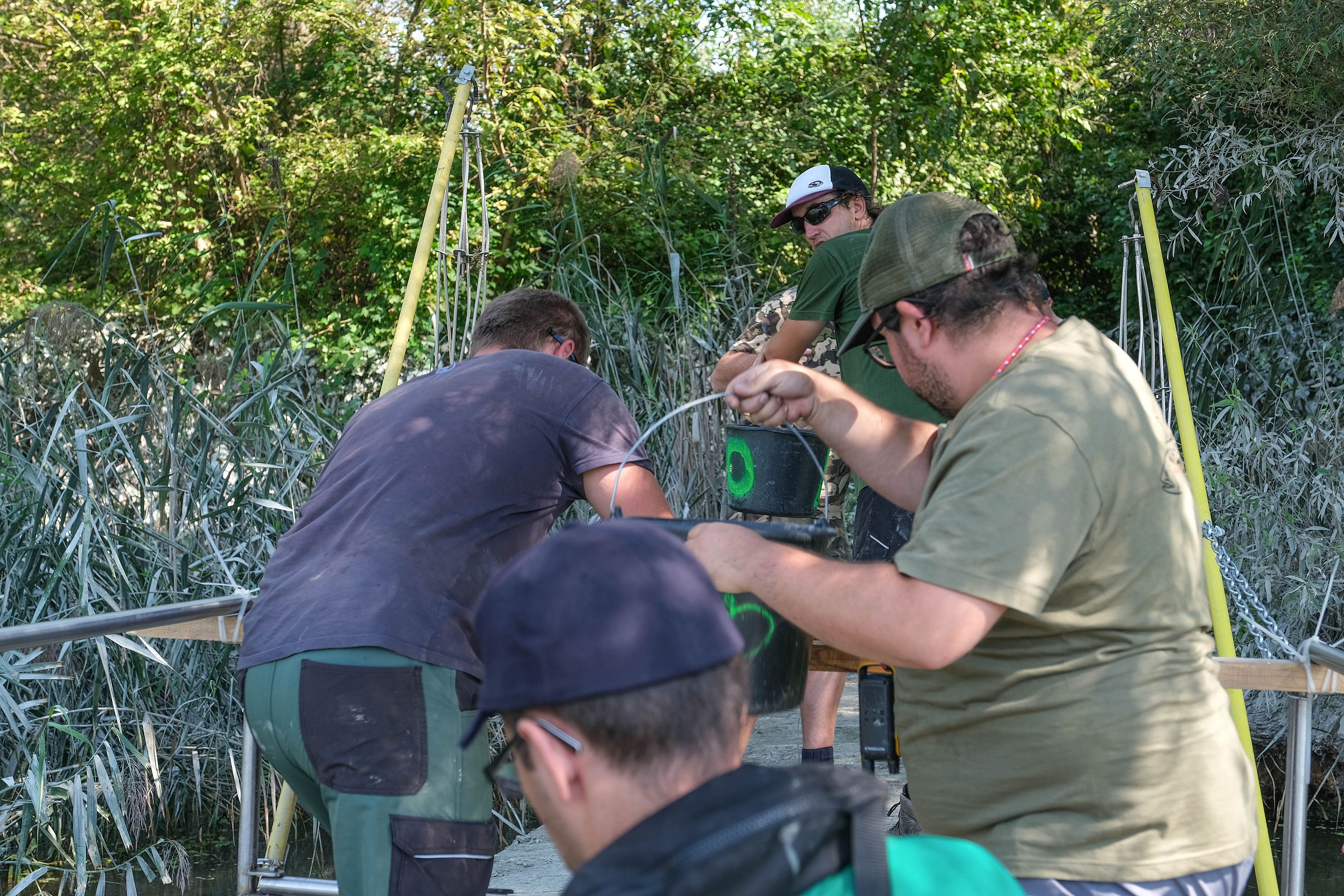
On June 14, 2023, FFPW JU staff (Bořek Drozd, Miloš Burič, Jan Kubec, Martin Vlk and M. Šindler) together with other partner organizations of the LIFE Living Rivers project (LIFE21-IPE-SK-LIFE Living Rivers/101069837) carried out the stocking of 20 thousand of marked juveniles of the sterlet (A. ruthenus) to the Slovak part of the Danube (Čunovo, Sáp, Velkolelský ostrov).
RNDr. Bořek Drozd, Ph.D.
- Fotogalerie:
- Foto:
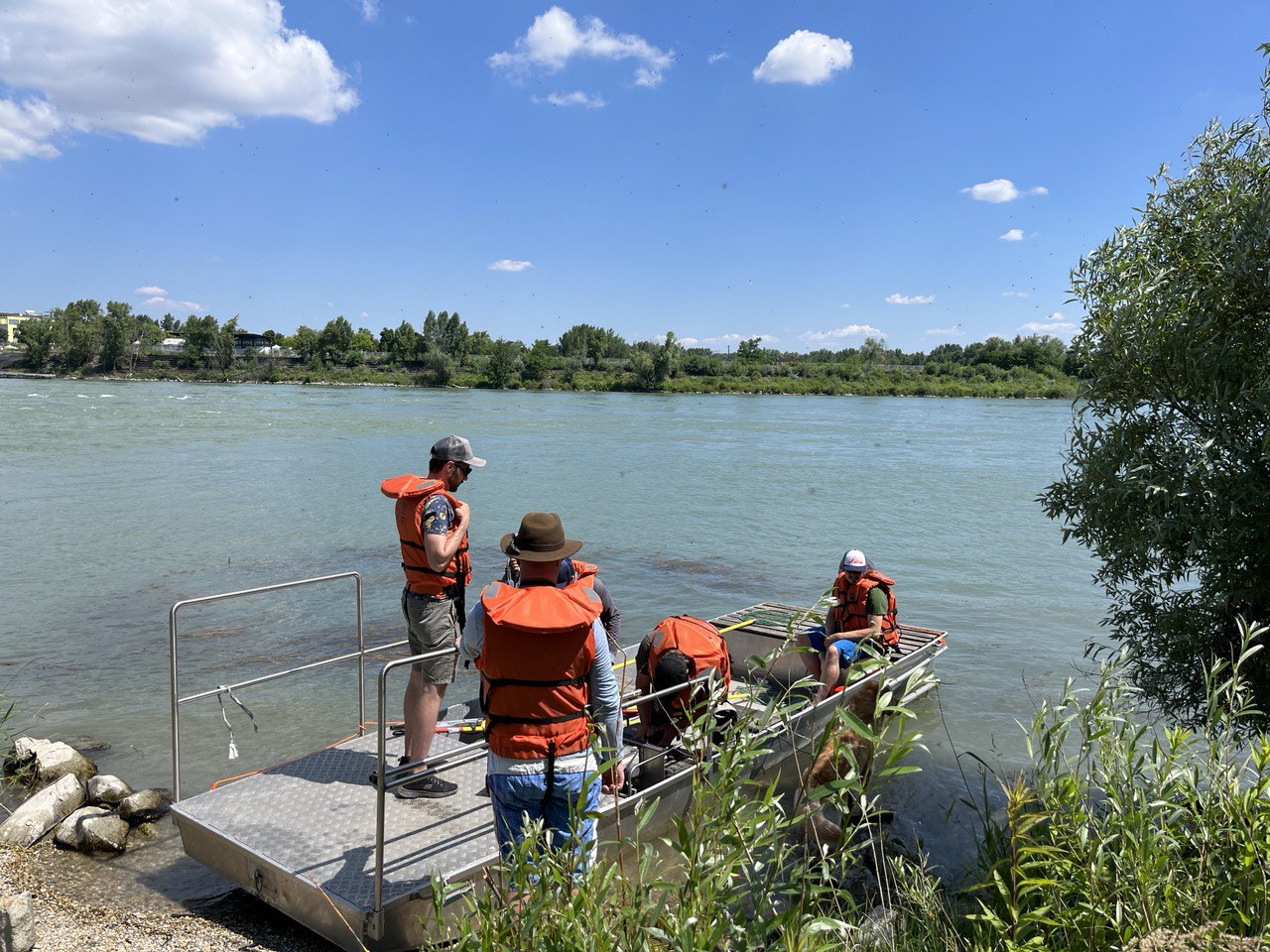
On June 26-27, 2023, staff of FFPW USB (Bořek Drozd, Lukáš Veselý, Filip Ložek, Martin Vlk, Jan Kubec and M. Šindler) visited the Slovak part of the Danube and the side branch system. They performed detailed mapping and preparation of localities for ichthyomonitoring as part of the LIFE21-IPE-SK-LIFE Living Rivers/101069837 project.
RNDr. Bořek Drozd, Ph.D.
On 11 June 2025, a total of 12,100 juvenile sterlet (A. ruthenus) were tagged by the group marking method using ARS bath in the facilities of Rybníkářství Pohořelice plc.
On 12 June 2025, the FFPW USB staff (Bořek Drozd, Miloš Buřič, Jan Kubec, Martin Vlk, Filip Ložek and M. Šindler) together with other partners of the LIFE Living Rivers project (LIFE21-IPE-SK-LIFE Living Rivers/101069837) released the marked juvenile sterlet into the Slovak part of the Danube (Čunovo, Sáp). The whole event was accompanied by great media interest.
Written by: RNDr. Bořek Drozd, Ph.D.
A research team from the Laboratory of Controlled Reproduction and Intensive Fish Culture (LCRIFC) participated in AQUA2024, held in Copenhagen, Denmark, from August 26th to 30th, 2024. The team delivered both oral and poster presentations at the conference. The details of the presentations are as follows:
Mahyar Zare: eposter: Effect of fermented garlic Allium sativum powder on growth performance, blood biochemistry, heamatology and immune system of rainbow trout Oncorhynchus mykiss juveniles.
Ghasem Rashidian: oral presentation: The synergistic effects of four medical plant seeds and chelated minerals on the growth, immunity, and antioxidant capacity of rainbow trout.
Hung Quang Tran: oral presentation: Harnessing computer vision to assess diet palatability: the case of rainbow trout (Oncorhynchus mykiss) fed dietary insect meal.
Vlastimil Stejskal: eposter: Dietary methane-utilized bacteria (Methylococcus capsulatus) protein as a replacement for fishmeal in diets for Siberian sturgeon (Acipenser baerii).
On September 8th–11th, 2024, I participated in the 58th Congress of European Societies of Toxicology (EUROTOX 2024) in Copenhagen, Denmark. I presented the results of my ongoing research through a poster presentation. My presented research was focused on monitoring in vitro biological activities of some environmentally relevant compounds. Additionally, the trip included discussions about current and future collaborations with researchers from other institutions. I want to thank the Czech Science Foundation (project No. 20-04676X), the grant agency of the University of South Bohemia in České Budějovice (project no. GAJU 006/2024/Z Amankwah), and the project CENAKVA (LM2023038) granted by the Ministry of Education, Youth and Sports of the Czech Republic for sponsoring the research and the trip.
From August 25th to 30th, 2024, Vaclav Nebesky and Martin Prchal visited Copenhagen, Denmark, to attend the Aqua 2024 conference held at the Bella Center. Václav Nebeský represented the faculty at the trade show stand for 3 days. Colleague Martin Prchal then gave an oral presentation entitled: The potential of selective breeding to eliminate unfavourable scaly patterns in Amur mirror carp. This presentation presented the possibilities of selective breeding in the Amur mirror carp in order to improve the undesirable shedding of this breed without further negative effects on utility traits.
Written by:Václav Nebeský, Martin Prchal
- Fotogalerie:
- Foto:
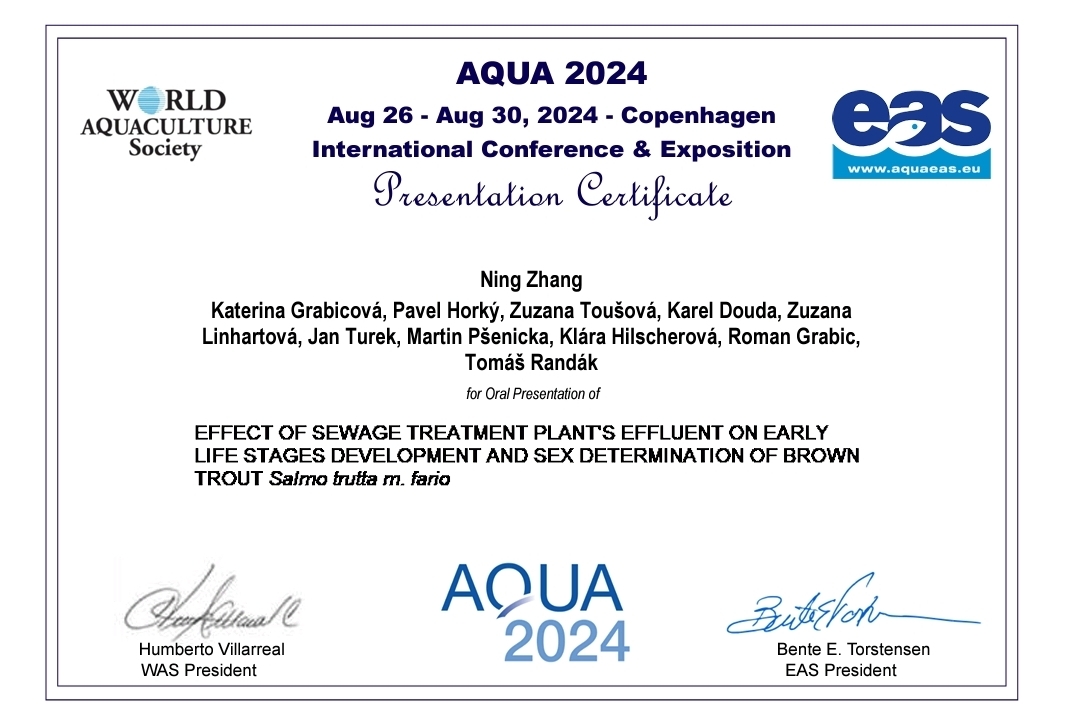
I attended the international conference - AQUA 2024, held in Copenhagen, Denmark, from the 26th to the 30th of August. I had an oral presentation.
- Ning Zhang*, Katerina Grabicová, Pavel Horký, Zuzana Toušová, Karel Douda, Zuzana Linhartová, Jan Turek, Martin Pšenicka, Klára Hilscherová, Roman Grabic, Tomáš Randák. Effect of sewage treatment plant's effluent on early life stages development and sex determination of brown trout (Salmo trutta m. fario).
Dr. Koushik Roy, deputy head of laboratory of nutrition attended the AQUA2024 conference jointly organized by World Aquaculture Society and European Aquaculture Society during 26-30 August 2024 in Copenhagen, Denmark. He chaired a session (Ecosystems). He gave 2 oral presentations including one special workshop lecture organized by EUROFISH Denmark (Light and other organisms), where he communicated the findings of national project (QK22010177) result on European fishpond nutrition. The abstract can be found here:https://eurofish.dk/PDF/Light-abstracts/10.pdf. Together with Prof. Marc Verdegem from Wageningen University, Koushik made fruitful discussions on forming future H2020 consortiums, a special issue proposal on pond nutrition, and an opinion paper on role of ponds within aquaculture and food systems with eminent experts of aquaculture nutrition or pond aquaculture; most notably Prof. Giovanni M. Turchini (University of Melbourne) and Prof. Delbert Gatlin III (Texas A&M University). Thus, extending the CENAKVA research program 3 mandates globally.
From August 26th to 29th, 2024, Jan Urban and Mohammad Mehdi Ziaei from the Laboratory of Signal and Image Processing traveled to Copenhagen, Denmark, to attend the Aqua 2024 conference held at the Bella Center. This event is a significant gathering for professionals in the field of aquaculture, offering a platform to learn about the latest research and engage with experts in the industry.
Oral Presentations:
Jan Urban: Presentation on “FISH ACOUSTIC TELEMETRY: CAUSAL STOCHASTIC SYSTEM AND MARKOV MODEL ANALYSIS”
Mohammad Mehdi Ziaei: Presentation on “CAMERA TECHNOLOGY FOR EARLY STAGE DETECTION AND PREDICTION OF RED MARK SYNDROME IN RAINBOW TROUT Oncorhynchus mykiss”
Mohammad Mehdi Ziaei: Presentation on “ADAPTING CNN-BASED INDIVIDUAL IDENTIFICATION TO IDENTIFY FISH INDIVIDUALS UNDER REAL CONDITIONS”
This trip was highly productive, providing a deeper understanding of current trends and innovations in aquaculture. It also offered the opportunity to network with researchers and industry experts, potentially leading to future collaborations. The knowledge gained and connections made during the conference could be highly beneficial to our lab.
Written by: Mohammad Mehdi Ziaei
Testing samples from the LRI project CENAKVA using the Celena X instrument at Logos Biosystems SARL
On March 19, 2025, I departed from Nové Hrady in the early morning hours and traveled to Prague, from where I flew to Paris. There, I transferred to a train and arrived in Lille later in the morning. Lille is the location of Logos Biosystems SARL.
Upon arrival, I met with Ms. Karine Labour (Europe Managing Director) and Mr. Javier García (Field Application Scientist). After an initial introduction to the Celena X instrument, we immediately began practical testing of the samples brought from the CENAKVA LRI project. Testing continued throughout the rest of the day and into the following morning.
On the afternoon of March 20, I returned to Prague via Paris and then traveled back to Nové Hrady by car.
The obtained data was provided to me for further processing and was presented at a laboratory meeting on March 24, 2025. The results generated considerable interest and contributed to clarifying issues related to the samples, which could not be adequately analyzed using the equipment available in our laboratory.
In conclusion, the business trip fulfilled its purpose, and the results represent a significant contribution to the continued success of the project.
